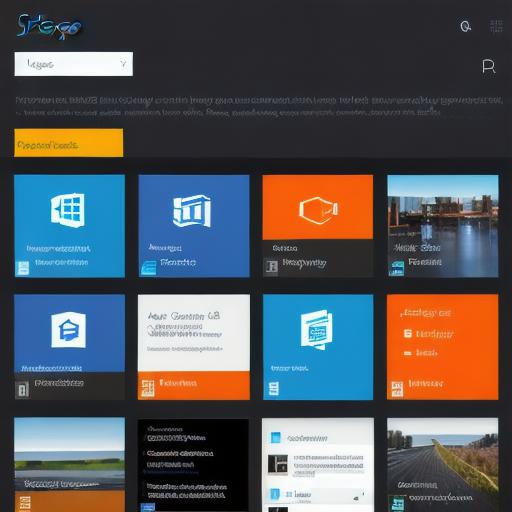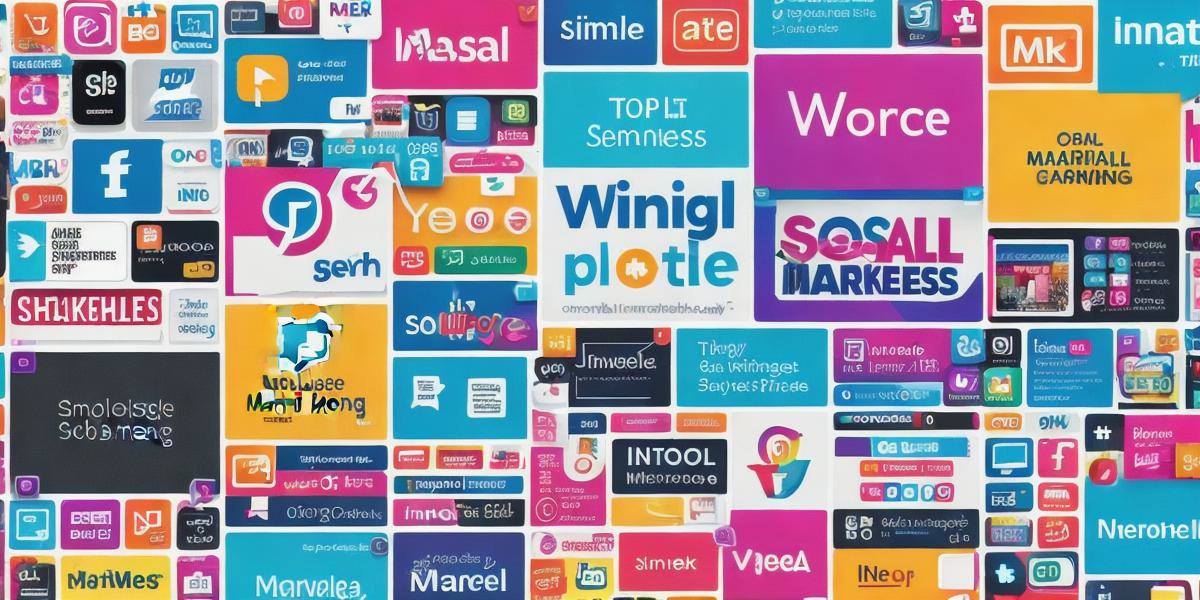Marketing is a crucial aspect of any business, and with the rise of digital platforms, it has become easier than ever to reach your target audience. But with so many marketing tools available, it can be overwhelming for small businesses to choose the right ones. In this article, we will explore the top 5 marketing tools that every small business should consider using to grow their online presence and increase their revenue.
1. Hootsuite
Hootsuite is a social media management tool that allows you to manage all your social media accounts in one place. With Hootsuite, you can schedule posts, monitor mentions, and track analytics for multiple platforms. This tool is particularly useful for small businesses with limited resources as it saves time and effort by automating repetitive tasks.
Hootsuite also has a feature called Insights, which provides you with valuable insights into your audience’s preferences and behavior on social media. With this information, you can tailor your content to better engage your audience and increase your reach.
2. Mailchimp
Mailchimp is an email marketing tool that allows you to create and send targeted email campaigns to your customers. This tool is particularly useful for small businesses with a mailing list as it provides features like email templates, automation, and analytics.
With Mailchimp, you can segment your email list based on various factors like location, interests, or purchase behavior. This allows you to send tailored emails that resonate with each group of customers. Additionally, Mailchimp’s A/B testing feature allows you to test different email subject lines, content, and calls-to-action to see which ones perform better.
3. Google Analytics
Google Analytics is a web analytics service that allows you to track website traffic, user behavior, and conversion rates. This tool is essential for small businesses with an online presence as it provides valuable insights into how users interact with your website.
With Google Analytics, you can track the number of visitors to your website, the pages they visit, and the actions they take on your site. You can also monitor bounce rates, conversion rates, and time spent on each page. This data helps you optimize your website for better user experience and higher conversions.

4. Canva
Canva is a graphic design tool that allows you to create professional-looking graphics and visuals for your marketing campaigns. This tool is particularly useful for small businesses with limited resources as it provides pre-designed templates, drag-and-drop features, and an easy-to-use interface.
With Canva, you can create eye-catching social media graphics, email templates, and print materials. You can also customize these templates to match your brand’s colors and fonts. Additionally, Canva provides a feature called "Brand Kit" that allows you to store your brand’s visual elements like logos, fonts, and color palettes in one place for easy access.
5. HubSpot
HubSpot is an all-in-one marketing, sales, and service platform that provides a suite of tools to help small businesses grow their online presence. This tool offers features like email marketing, lead generation, social media management, and analytics.
With HubSpot, you can create targeted email campaigns, track website traffic, and monitor social media activity. You can also generate leads through various channels like landing pages, forms, and email marketing. Additionally, HubSpot’s sales automation feature allows you to streamline your sales process and close more deals.
Case Studies: Real-Life Examples of Successful Small Businesses Using Marketing Tools
Small businesses from various industries have successfully used the above-mentioned marketing tools to grow their online presence and increase their revenue. Let’s look at some real-life examples.
Example 1: Social Media Management with Hootsuite
Social media has become a crucial part of any business’s marketing strategy, and Hootsuite is an excellent tool for managing social media accounts. For instance, a small business that sells handmade jewelry can use Hootsuite to schedule posts on Instagram, Facebook, and Twitter. They can also monitor mentions and track analytics to see which posts perform better. By using Hootsuite, this business can save time and effort while ensuring consistent engagement with their audience.
Example 2: Email Marketing with Mailchimp
Email marketing is a cost-effective way of reaching customers directly, and Mailchimp is an excellent tool for small businesses to create targeted email campaigns. For example, a small business that sells organic skincare products can use Mailchimp to segment their email list based on interests and purchase behavior. They can then send tailored emails with exclusive offers and discounts to each group of customers. By using Mailchimp’s A/B testing feature, this business can optimize their email campaigns for higher conversion rates.
Example 3: Website Analytics with Google Analytics
Google Analytics is an essential tool for small businesses with an online presence as it provides valuable insights into website traffic and user behavior. For instance, a small business that sells online courses can use Google Analytics to track the number of visitors to their website, the pages they visit, and the actions they take on their site. By using Google Analytics, this business can optimize their website for better user experience and higher conversions.
Example 4: Graphic Design with Canva
Graphic design is an essential part of any marketing campaign, and Canva is an excellent tool for small businesses to create professional-looking visuals. For example, a small business that sells artisanal coffee can use Canva to create eye-catching social media graphics, email templates, and print materials. By using Canva’s pre-designed templates and drag-and-drop features, this business can save time and effort while ensuring consistency in their branding.
Example 5: All-in-One Marketing with HubSpot

HubSpot is an all-in-one marketing, sales, and service platform that provides a suite of tools to help small businesses grow their online presence. For instance, a small business that sells eco-friendly clothing can use HubSpot to create targeted email campaigns, track website traffic, and monitor social media activity. By using HubSpot’s sales automation feature, this business can streamline their sales process and close more deals.
FAQs: Frequently Asked Questions About Marketing Tools for Small Businesses
Q1: What is the best marketing tool for small businesses?
The best marketing tool for small businesses depends on the specific needs of the business. However, Hootsuite, Mailchimp, Google Analytics, Canva, and HubSpot are some of the most popular and effective marketing tools for small businesses.
Q2: How do I choose the right marketing tool for my small business?
To choose the right marketing tool for your small business, you need to consider your specific needs and goals. For instance, if your business needs to manage social media accounts, Hootsuite is an excellent tool. If your business needs to create targeted email campaigns, Mailchimp is a great option. By considering your specific needs and goals, you can choose the right marketing tool for your small business.
Q3: Do I need to hire a marketing expert to use these tools?
No, you do not need to hire a marketing expert to use these tools. These tools are user-friendly and can be easily used by anyone with basic computer skills. However, if you are new to marketing or unsure how to use these tools effectively, hiring a marketing expert may be beneficial.
Q4: How much do these marketing tools cost?
The cost of these marketing tools varies depending on the specific features and plans that you choose. Hootsuite, Mailchimp, and Canva offer free plans with basic features, as well as paid plans with more advanced features. Google Analytics is free to use, but there are paid plans available for businesses that need additional insights and features. HubSpot offers a free plan with basic features, as well as paid plans with more advanced features.
Q5: Can I use these marketing tools together?
Yes, you can use these marketing tools together to create a comprehensive marketing strategy. For example, you can use Hootsuite to manage social media accounts and Mailchimp to create targeted email campaigns, while using Google Analytics to track website traffic and Canva to create professional-looking visuals. By using these tools together, you can ensure consistency in your branding and optimize your marketing efforts for better results.
Summary: The Importance of Marketing Tools for Small Businesses
Marketing tools are essential for small businesses to grow their online presence and increase their revenue. These tools can help businesses manage social media accounts, create targeted email campaigns, track website traffic, create professional-looking visuals, and automate sales processes. By using the right marketing tools effectively, small businesses can save time and effort while ensuring consistent branding and optimizing their marketing efforts for better results.




